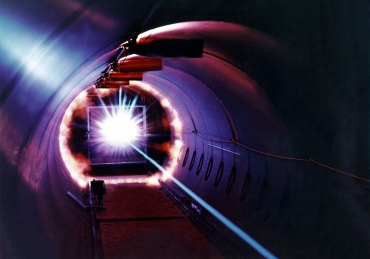Will fasting for 12 hours in the summer months or following the fasting times of Saudi Arabia suffice for Muslims in the UK?
بسم الله الرحمن الرحيم
Fasting during the month of Ramaḍān is one of the five pillars of Islam. The timing of fasting is fixed between Ṣubḥ al-Ṣādiq (true dawn) and sunset based on the location of the individual. This is clearly evident from the verse of the Qurʾān (2: 187) wherein Almighty Allah says, “And eat and drink until the white thread (light) of dawn appears to you distinct from the black thread (darkness of night), then complete the fast till the nightfall.” The words “appears to you” explicitly affirm that the timing of the fasting is based on the location of the individual, irrespective of whether the day is long or short. This is no different to the timings of Ṣalāh. There may be a legitimate difference of opinion regarding the precise time of true dawn and what constitutes Subḥ Ṣādiq in astronomical terms but there is no legitimate difference of opinion regarding the principle of fasting during the day from true dawn to sunset.
The companion Sahl ibn Saʿd (d. 91/709-10) (may Allah be pleased with him) said: The verse “And eat and drink until the white thread appears to you distinct from the black thread” was revealed, and the words “of dawn” were not revealed. Thus, when people wanted to fast, one of them would tie a white thread and a black thread to his foot. Then he would continue to eat until he could differentiate between them when he looked at them. Thereafter, Allah revealed the words, “of dawn”. They then realised that the verse referred to night and day.[1] Similarly, ʿAdī ibn Ḥātim (d. after 60/679) (may Allah be pleased with him) narrates that when the verse “Until the white thread of dawn appears to you distinct from the black thread” was revealed, I took a black rope and a white rope and put them beneath my pillow, and I started to look at them during the night, but I could not see any distinction between them. The next morning I went to the Messenger of Allah ﷺ and informed him about this. He said, “Rather that is the blackness of the night and the whiteness of the day”.[2] These narrations affirm that the timing of fast is between true dawn and sunset, based on the location of the individual.
Similarly, Almighty Allah says in the same verse, “It is made lawful for you to have sexual relations with your wives on the night of the fasts.” This part of the verse explicitly affirms that that the timing of the fast is the full day from true dawn to sunset. Adopting a twelve hour fast or following the fasting times of Saudi Arabia directly contradicts this verse.
The unanimous position of the various schools of thought is that fast begins at true dawn and ends at sunset. This has been mentioned by all the jurists in the books of jurisprudence. Many scholars have cited consensus on this.[3] There is no difference of opinion among mainstream scholars regarding this. Isolated views on this matter appearing from so called scholars advocating a twelve hour fast or following the times of Saudi Arabia must be disregarded and will not affect the Ijmāʿ (consensus) of the Ummah. Such attempts to distort the fundamental tenants of Islam and deviate Muslims in the guise of modernisation and reformation are illusory and a continuation of the attempts that have occurred from the time of the Prophet ﷺ in different forms. The Prophet ﷺ warned us from such people when he said, “Towards the end of the time, there will be ‘dajjāls’ liars. They will relate to you sayings, which neither you nor your forefathers have heard. Beware of them lest they misguide you and cause you tribulations.”[4] The famous Ḥanbalī scholar and minister, Imam Ibn Hubayrah (d. 560/1165) writes in the commentary of this narration, “The jurisprudence of this narration includes a severe prohibition on innovations, a strong warning against innovators, and encouragement to follow [the Sunnah]. This warns a person that he should in all matters only follow that person who he trusts to have sound views and who adheres to the Sunnah.”[5] The famous Ḥanafī scholar Mullā ʿAlī al-Qārī (d. 1014/1605) narrates that the narration refers to a group of individuals who will claim that they are scholars and saints qualified to speak on matters of faith. However, they will narrate fabricated narrations, innovate unfounded rulings and corrupt beliefs.[6]
It is worth noting that Muslims have been residing in the UK for many decades and have managed to fast during the summer period. Over the centuries, Muslims have resided in areas that share a similar latitude to the UK. An example of this is Bulgār (Kazan, Russia) regarding which jurists mention that dawn appears before the disappearance of the Shafaq in the summer months and thereby the time of ʿIshāʾ Ṣalāh does not occur.[7] This is similar to the UK. The famous traveller Ibn Baṭūtah (n.d.) visited Bulgār in or around the year 732/1332, in which the beginning of Ramaḍān fell on 27 May.[8] He writes, “I had heard of the city of Bulgār and desired to visit it, in order to see for myself what they tell of the extreme shortness of the night there and also the shortness of the day in the opposite season. It was ten night’s journey from the sultan’s camp, so I requested that he would give me a guide to take me to it and he did so. We reached it in the month of Ramaḍān. When we performed Magrib Ṣalāh, we had Ifṭār, and the call for the ʿIshāʾ Ṣalāh was made during our Ifṭār. We performed [ʿIshāʾ] Ṣalah and Tarāwīḥ and Witr Ṣalāh and dawn appeared thereafter. Similarly, the days are short in the winter season. I stayed there for three days.”[9] This account clearly indicates that the Muslims in Bulgār fasted until sunset. Moreover, the jurists who have discussed the issue of ʿIshāʾ Ṣalāh in Bulgār have not mentioned an alternative time or formula for fasting. This is because Ṣubḥ Ṣādiq (true dawn) occurs in Bulgar just as it occurs in the UK throughout the year. The persistence of twilight at night in the summer months does not mean that Ṣubḥ Ṣādiq does not occur. This should not be confused with those lands in which the sun does not set during the summer and does not rise during the winter, or in which the day lasts for six months and the night lasts for six months. In such places, they will follow the closest country where the sun rises and sets within a 24 hour period.
Islam is a religion of ease and does not over burden anyone. Almighty Allah says, “Allah does not burden a soul beyond that it can bear.”[10] Accordingly, if someone is unable to fast during the summer months due to a justifiable reason such as elderly age or ill health, the Sharīʿah has prescribed alternative solutions for such people depending on their circumstance. If they are able to fast in the winter months, they will be required to undertake Qaḍāʾ of their fasts. If they are unable to fast at all, they will compensate via Fidyah as outlined in the Qurʾān. [11] If indeed it was possible to undertake a short fast, permission would have been granted for the ill and elderly to do so. The fact that the Qurʾān mentions an alternative demonstrates that the time of the fast is fixed and cannot be altered.
In conclusion, fasting for twelve hours in the summer months in the UK or following the fasting times of Saudi Arabia is impermissible and contravenes the teachings of the Qurʾān and Sunnah and disregards the consensus of the scholars and the practice of the Ummah. The obligation will only be fulfilled by fasting from Ṣubḥ Ṣādiq (true dawn) to sunset.
Allah knows best
Yusuf Shabbir
29 Shaʾbān 1437 / 5 June 2016
Footnotes
[1] Ṣaḥīḥ al-Bukhārī (1917).
[2] Ṣaḥīḥ al-Bukhārī (1916).
[3] Sunan al-Tirmidhī (705); Sharḥ Ṣaḥīḥ al-Bukhārī Li Ibn Baṭṭāl (4: 102); Marātib al-Ijmāʿ (1: 39); al-Iqnāʿ Fī Masāʾil al-Ijmāʿ (1: 226); al-Majmūʿ (3: 45).
[4] Muqaddamah Ṣaḥīḥ Muslim (7); Musnad Aḥmad (8596)
[5] Al-Ifṣāḥ ʿAn Maʿānī al-Ṣiḥāḥ (8: 195).
[6] Mirqāt al-Mafātīḥ (1: 239).
[7] Ḥāshiyah al-Shilbī (1: 81); al-Nahr al-Fāʾiq (1: 161); Ḥāshiyah al-Ṭaḥṭāwī ʿAlā Marāqī al-Falāḥ (1: 178); Radd al-Muḥtār (1: 362).
[8] Some historians question Ibn Baṭuṭah’s visit to Bulgār whilst others suggest an error in the order of events or in the number of days of travel. This is because the distance between Bulgār and the Sultan’s palace is 1300 km making it impossible to cover this distance in 10 days (see al-Falaq Idha Lam Yagib al-Shafaq, unpublished, p. 19).
[9] Riḥlah Ibn Baṭūṭah (2: 236).
[10] Al-Qurʾān al-Karīm (2: 286).
[11] Al-Qurʾān al-Karīm (2: 183).






